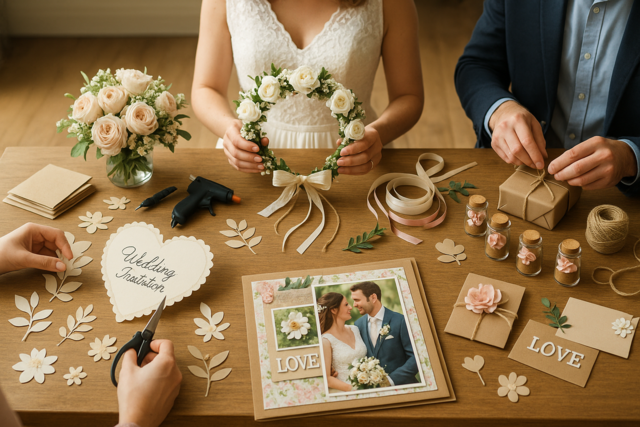Introduction: Before you "hang out your shingle" and open for business, assess your skills. To be successful as an Image Consultant you must know and develop some specific crafts. The abilities you want to bring to the business will depend somewhat on what area of image you aim your focus. However, there are several areas that will be demanded regardless of the specific area or if you go full force and offer every service.
The ability to use your senses; visual, tactile, smell, and hearing, is your biggest ally. You might think your senses are good, and they might be, but you have to test that and be sure. The way to test it can be done in several ways. You can meet with another professional and get an honest opinion, you can look on line and find a trove of classes, websites and then there are stacks of literature you can purchase or check out of the local library.
The second ability that will guide your work is the ability to work "in the details." So much of a person's image is defined in subtlety, refinement, modification and delicate tweaks. Small changes can often make the biggest differences. Overreacting and throwing out everything a client is doing loses pieces of who the client really is. To make any changes and to work on such a personal level with a client you need to start with where they are.
Relationships might be the most important skill to make your business a success or a failure. No business can succeed unless there are clients or customers. You might not be the best at color but you'd better be the best at relationships. This is the make or break trait. There is no excuse for treating a client with anything other than kindness, courtesy, tolerance, and understanding. It takes a lot of nerve to go to a stranger and ask for help that is as personal as an image change.
The next three skills that can take your business to the next level are organization, time management and flexibility. These are different pieces of the same stew. They lean on one another, support one another, and can definitely be learned. Organization of your time, products, appointments, data, and resources require a plan. If you are not good at pulling together a concrete plan, then get help, but don't just let things fall apart. Don't let the need to control stop you. An organizational planner will only help you establish your control in more effective ways.
Marketing is another side to your business that you can learn or hire someone else to do. Marketing includes clearly communicating your services, hours, fees, and your credentials. It is how any business works to bring in clients. It can be done in so many ways and in so many different kinds of media that without at least consulting with a professional in the field you may be missing a very important part that could develop your business at the rate you want.
In your notebook, make a list of these essential abilities and examine yourself according to these abilities. Make a note about which you should work on and begin to do that. You can watch videos, read articles on line, and books. You can also work with another experienced image consultant. Know yourself inside and out and pay attention.
A. Sensory skills are important to an image consultant for so many reasons. Color, style, the fabric of clothing, the scent of makeup, cologne and body washes, hygiene, visual details of the cut of an outfit, the length of hair, the shape of a face or body are all involved in improvement of a person's image. The sound of a person's voice, the modulation of the tone, the use of words and phrases and the sound of courtesy and tolerance, are important.
To increase your sensory intelligence there are specific actions you can take. The first is to be very observant. To increase ability in this skill you have to practice. Take a note pad and pencil and sit in a caf� and watch people. Observe those whose images are expressed well or poorly. Make some notes in your notebook about what you see, what you like, what people do that works for them and what doesn't. Be aware of current trends by reading magazines and looking on line at websites that post those things. See what is trending in your area, in your culture and in your environment. Another way to attend to sensory input is to imitate what others are doing in dress or accessories that looks like it works. That doesn't mean to throw everything out and spend a lot of money. It can mean using what you have and rearranging your pieces, having some things tailored or trying a hair rinse instead of a dye. A third suggestion to increase you sensory I.Q. is to get out of your comfort zone. You see a person wearing something you would never consider a large person could wear but you like it so you try it out yourself.
Start with the things you "go to" the most when dressing. Your favorites are the things you feel more comfortable in, are usually the colors you prefer and like on yourself, and have a cut that you favor. Do an on-line search on those favorite styles, prints or colors and see what others are doing with those pieces. Make notes in your notebook about what you find out about yourself. Making changes in your own image is the best experience you can have before you change the image in others.
B. Details are the small, seemingly insignificant parts of a person's image. The earrings, the makeup, the color, the cut of a top or dress, the fit of the jeans or shorts, the comfort of the shoe, the jewelry, neckline, hemline, hair color and the scent used are all details. Sometimes it is a person's demeanor that makes an image successful or not. If a person is rude, haughty, unhappy, or depressed, it will do little to change the appearance without first helping that person change what is within. Sometimes it is the way a person behaves that makes their image appeal to you. When you observe people, watch and decide if the images that are appealing are supported by behaviors and voices that are also appealing.
Behaviors can range from dining etiquette to body language. It can involve the sound of a voice or the language used by a person. Behaviors can be tolerant and forgiving or controlling and demeaning. Behavior is one thing to look for at the initial interview. It is difficult to hide regular habits of ill-mannered behavior. Someone who talks too much, too loud, or constantly flashes disgust with ugly facial maneuvers or never smiles gives a negative image before anyone has a chance look further. Many times it is the business man who needs to lay out how great he is in the first breath who gets doors slammed in his face. Development of a different mindset will increase this person's positive image.
The details of the eyes, the edges of the mouth that seem always about to smile, the head that is lined up with the spine that reflects confidence and self-control are all details of behavior that have a big impact on the presentation of any person.
C. Knowing how to build relationships that work well is a skill that you need. You will be building relationships very closely with your clients. You have to be trusted, sensitive, nonjudgmental and all at the same time you are telling them what to change about themselves. It is a narrow path that takes time to figure out.
You also must have relationships with other professionals you will work with. Remember that you are an image consultant. You will be consulted to put together a plan that will help a client develop an improved image but you do very little of the work. It is possible that you will go shopping with your client, that you may even have a beautician's license and can do their hair but only if you are expert at it. Most image consultants have professionals that they refer their clients to for the work. The consultant is the "project manager." Keep that in mind. You will have to spend time and effort and some money to discover those rare experts in each field that you will be using. A makeup artist, an expert hair colorist, an expert hair stylist, an expert shopper, specific stores and boutiques that work with you, a dentist who can work magic, a plastic surgeon for minimal Botox injections to nose jobs are all people that you must maintain relationships with. You may have a counselor or psychologist on hand and a nutritionist.
All of these people are people who help you market yourself. Your reputation depends upon your ability to work with others in a professional, courteous and comfortable manner. You will need to build these relationships to let them know how important they are to your business. It might mean trading some of your skills, being flexible, knowing with their birthday is, sending thank you gifts, and stopping by to check in physically once in a while. The better your image, the more confident others will have sending friends, family and business partners to you. Don't minimize you own image. Take the time you need to do it right the first time. As your service grows and your reputation expands to one at an expert level, you will be able to increase your fees and add more experts to expand your business.
D. Management is a skill that is easy for some and highly difficult for others. Management is more than having control. It consists of thoughtful use of time, space, and people.
Management of time is a funny task. Everyone has the same amount of time, yet some people are able to do so much more in their time than others. So it is not making more time, it is using the time you have wisely. The way to do that is to know what is most important to you, not others. Some women think they have to work a full time job, keep the house clean, put the kids into every imaginable extra-curricular activity, serve wonderful meals and send everyone they know a birthday card. No one can do it all and no one can survive on 4 hours of sleep a night. Honesty really is the best policy. Prioritize what you want out of life. Can those things be achieved with what you are doing now? If not change what you are doing. People will say I have to work this much to pay the bills. The answer is to stop buying things or sell them. Don't be chained to bills and stuff. Others think their kids will suffer if they don't participate in activities. Guide them to the studies that argue against that thought. Let them be creative with their time and it will serve them well. Make sure you aren't trying to live up to somebody else's rules.
Organize what you do. Keep errands list and a bag with things that need taken somewhere, like books to the library, cleaning, returns and do it all in one trip. Have a set time to do it and then relax knowing you have taken care of it. Change the way you store you clothes. Put outfits together with accessories on them to make it easy and fast. Accessories are cheap so get what you need for each outfit. Need to organize more family time? Have a Saturday morning two hour clean the house party each week. Everybody helps with everything from laundry to vacuuming to lawn mowing. Then stop worrying because you've set a time to do it and you can relax. That also solves the problem of who has to do what. Organizing your spaces is another area you can do. Throw away things you don't use. Put what you need in convenient places. You know you don't really need all those appliances. You'd be surprised how creative you can get with a few basic items.
The last part of management is to learn to be forgiving of yourself and others when things don't happen how you thought they would. Be flexible as well. What if the kids sleep in the clothes they will wear to school the next day? Just leave it to peer pressure to do its work and forget about it. So you left your cell phone at work? Enjoy an evening with no phone. If they really need you they can call the police to come to your house. On top of practicing flexibility, try to ramp up your sense of humor. Don't let someone else's uptight problems become yours. Refuse to take them on. Stand up for yourself and your life. Control your own life style or others will control it for you.
In your notebook, make a chart with three headings: space, time, people. Under each one write your strengths and weaknesses and set a goal to improve your weak areas in each of the things. Being an image consultant is living the life.
E. The final skill that needs your attention is marketing. You can hire a marketing person or firm or you can do it yourself, but either way you need to develop some skills because marketing in this business will be mostly personal contacts as opposed to public signage. Marketing involves getting your message out to people who need it. Read that again because it is important. It needs to get to the people who need it.
Who needs to know what you do? Think about what group of people in your area would be responsive to an image change. If you live in a college town there are new graduates who will be going into the working world for the first time and though they can't afford much, they can't afford not to use your services. That is the message for that crowd. You market your services as an investment in a good job, better pay, and a second look. Another group that is always open to image change is any corporation. In a corporation, often a person who is an asset to the company needs some image tweaking and they are willing to pay to get that person to an image consultant. They also hire consultants to give group presentations or classes on specific skills, like working with people from another culture or dining etiquette. There are always social and community groups to present to. You will find yourself getting new clients from all of these places.
Another part of marketing is making sure you check and get a business name that is not already copyrighted. Develop a logo that you use on your website and your card and stationery. You need some simple, classy pamphlets to hand out with your information, services and fees. You don't want to be too specific about fees or order too many copies because if you make changes in your services or fees you will need to reorder or order the changes on stickers to make corrections on the brochure.
Your website needs to be professional and it is helpful if you make it so the reader can schedule an appointment right from the website. Invest in a good phone that offers what you need to have readily available and get an updated computer, printer, fax, and scanner. Keeping up with technology will build your business.
Summary: Starting any business requires skills specific to that business. An Image Consultant has to develop the ability to effectively access the senses. That means understanding and knowing how color, smell, touch, and sound can improve a person's image. Developing this skill involves reading, practicing, discussing with others who know, and becoming more aware. The second ability required as an Image Consultant is the skill of seeing the details. It is so often the details of a person's stance, movements, voice, accessories, hair cut or color that can make the difference in how they are perceived. This skill helps to bring a client into a better image sometimes with just a few tweaks and costing them less money. The third skill is that of building strong and successful relationships. For the Image Consultant, relationships are the building blocks of the whole business. Unless a consultant can relate to many different kinds of people, the business will fail. Organization of time, space, and people, not just in the job or the work, but in your whole life will help drive your success. Knowing how to prioritize, eliminate what is not important to you and your family, and center your life on well-being is most important. Finally, the skill of marketing is one you must see as part of each moment. How you look, how your clients look and feel, and how you treat those you refer clients to are all part of your marketing plan. It's important to maintain a website as well as a business card and a brochure that look professional and depict what your services are.






























